How to Prevent DOT Out of Service Violations
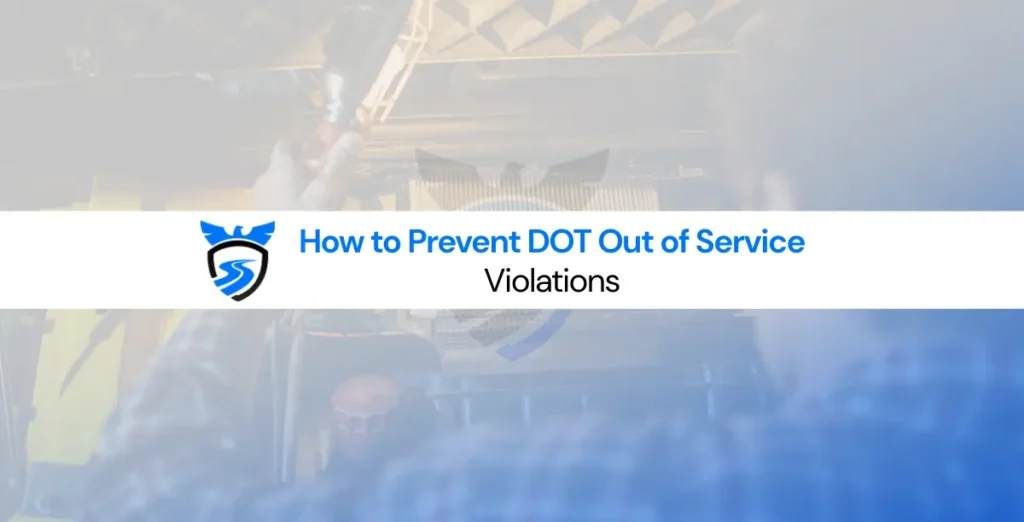
Out of service violations are one of the most disruptive events a trucking company can face. When a vehicle or driver is placed out of service, operations stop immediately. Loads are delayed, revenue is lost, and your company’s safety profile can take a serious hit. Preventing DOT out of service violations is not about luck. […]
Return to Duty Process After a DOT Violation
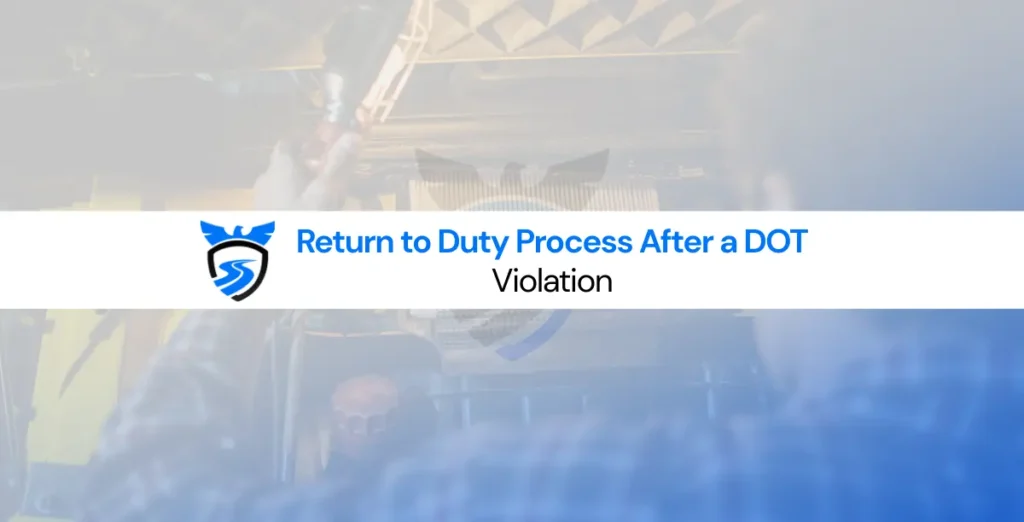
A DOT drug or alcohol violation can feel like the end of a trucking career, but in most cases it is not. The return to duty process exists to give drivers a structured, regulated pathway back to safety sensitive work. However, this process is strict, detailed, and fully monitored under federal regulations. Understanding each step […]
DOT Operating Authority Application Process
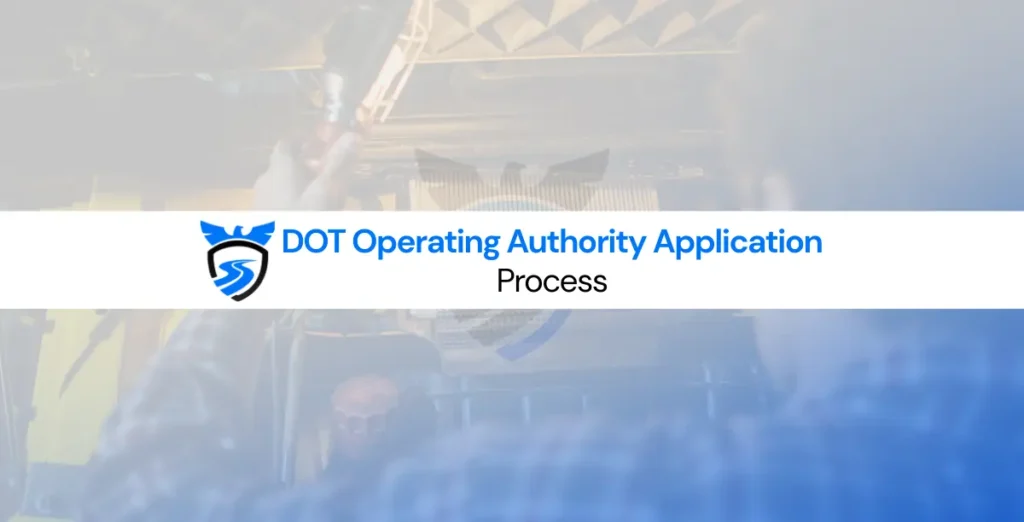
Starting a trucking business requires more than buying a truck and finding loads. Before you can legally operate across state lines, you must complete the DOT operating authority application process through the Federal Motor Carrier Safety Administration. This process ensures that carriers meet federal safety and financial responsibility standards before transporting regulated commodities or passengers. […]
Why SafeRoad Built a Purpose Built DOT Portal
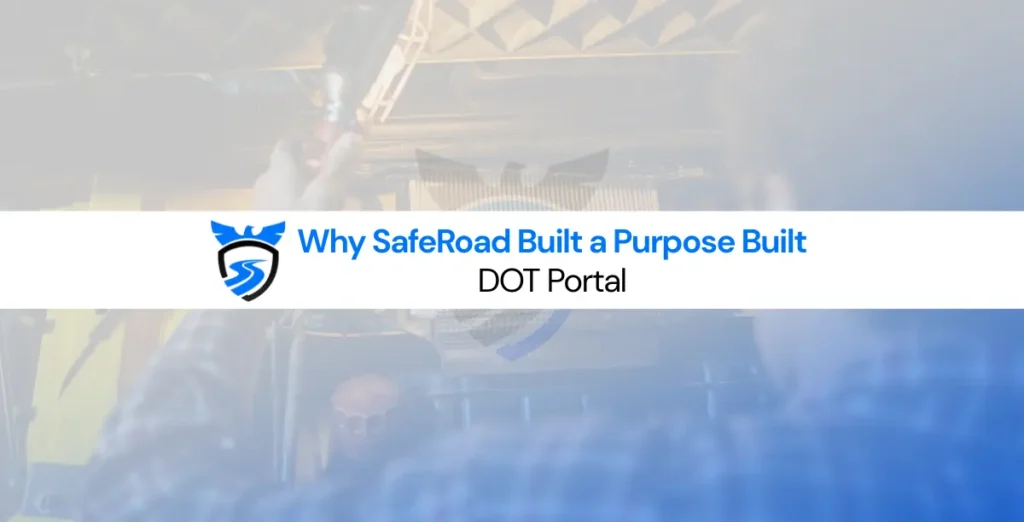
The transportation industry does not struggle because of a lack of tools. It struggles because most tools were never built specifically for DOT compliance. Spreadsheets, generic HR platforms, cloud storage apps, and basic fleet trackers all claim to help. But when an FMCSA audit notice arrives, most carriers realize their systems were never designed for […]
What Is a Smart Fleet Management System?
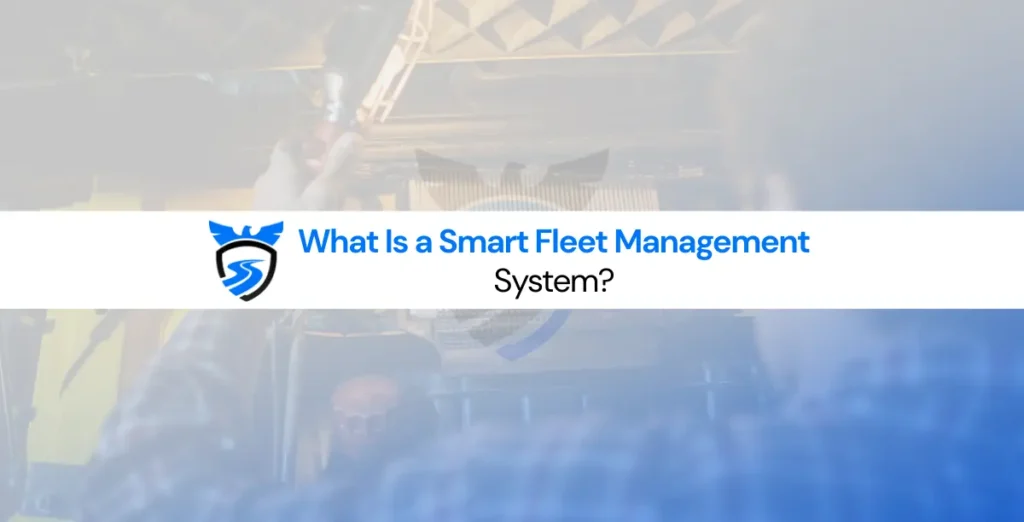
A smart fleet management system is a technology driven platform that connects vehicles, drivers, and back office operations into one intelligent ecosystem. It uses IoT sensors, telematics, cloud software, and automation to monitor fleet activity in real time. Instead of relying on manual logs and reactive processes, companies gain live visibility into safety, compliance, fuel […]
How Long to Keep DOT Compliance Records
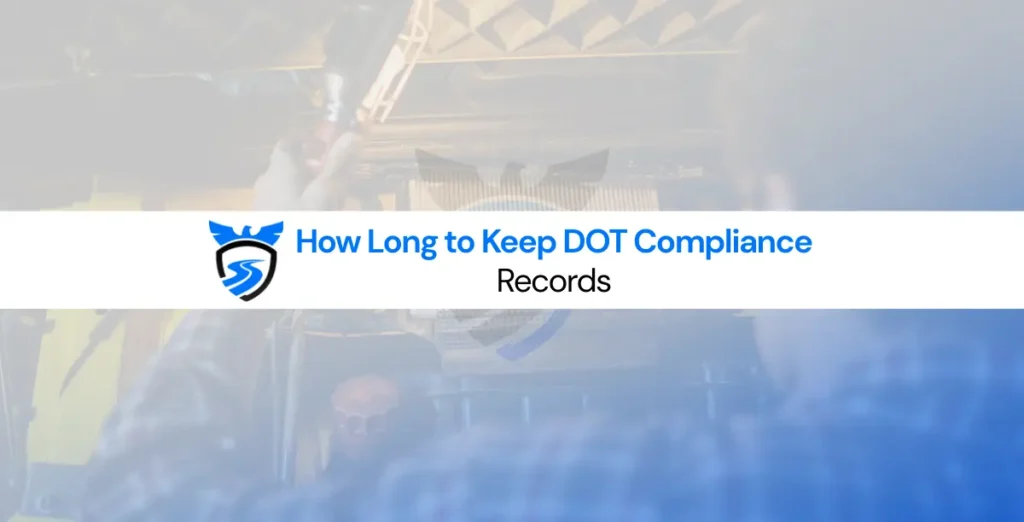
Record retention is one of the most misunderstood areas of DOT compliance. Many carriers focus heavily on filings, inspections, and driver qualifications, but overlook how long those records must actually be maintained. During an audit, missing documents can be just as damaging as missing inspections. Under FMCSA regulation 390.31, motor carriers are required to maintain […]
DOT Compliance Penalties and Fines: Updated 2026 Overview
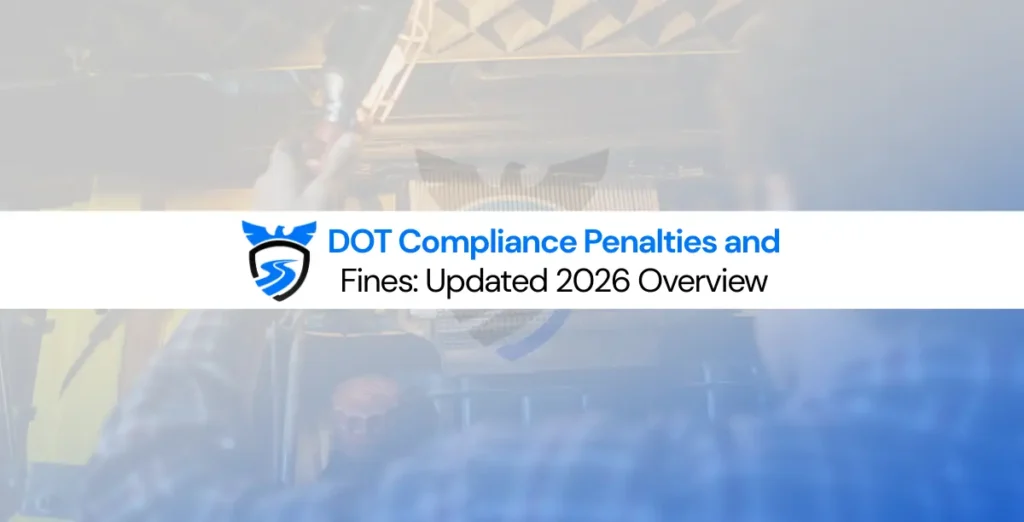
Disclosure: Informational only. We are not FMCSA or USDOT. Always verify your status directly through official systems. Why DOT Compliance Penalties Matter More in 2026 DOT compliance penalties are no longer just line items on an inspection report. In 2026, enforcement actions directly affect operating costs, insurance rates, freight eligibility, and long term business survival. […]
How Telematics and IoT Are Transforming DOT Compliance
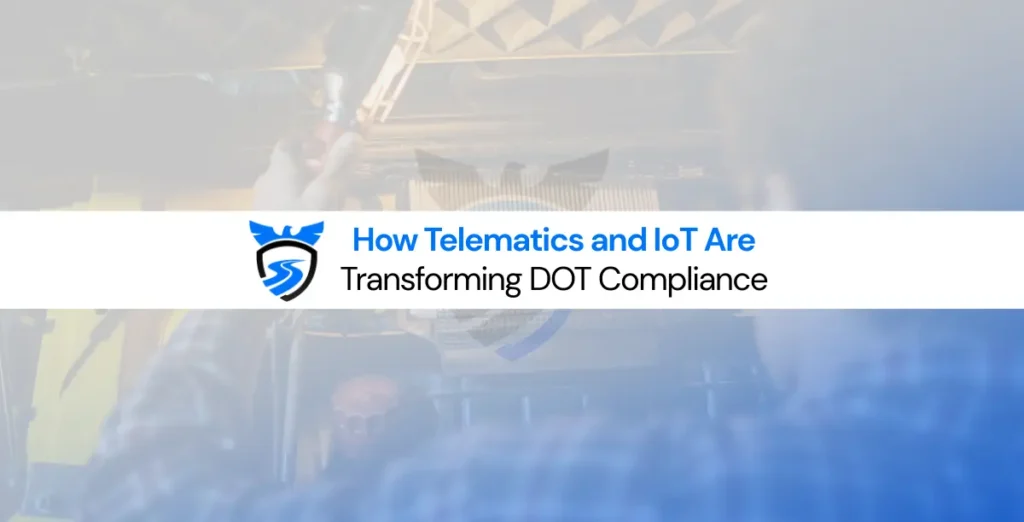
Disclosure: Informational only. We are not FMCSA or USDOT. Always verify your status directly through official systems. Why DOT Compliance Is Entering a Technology Driven Era DOT compliance has traditionally been paperwork heavy, manual, and reactive. Carriers often discover issues only after a roadside inspection, audit notice, or CSA score drop. Telematics and IoT are changing […]
What Makes a DOT Compliance Portal Trustworthy
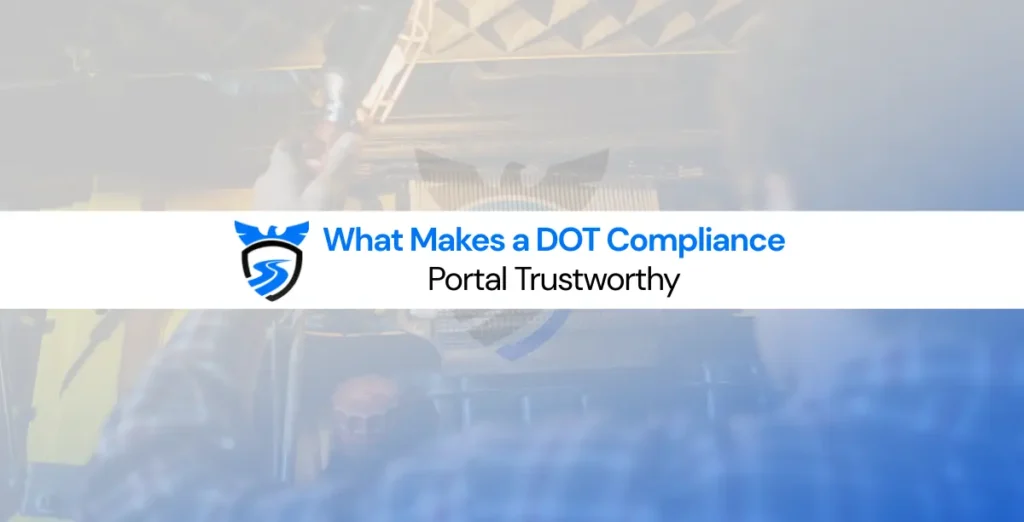
Disclosure: Informational only. We are not FMCSA or USDOT. Always verify your status directly through official systems. What Does Trust Mean in DOT Compliance Software? Trust in DOT compliance software means confidence that the system will hold up under FMCSA scrutiny, not just look organized on the surface. A trusted DOT compliance portal does more than […]
Preventing Missed Expirations with DOT Software
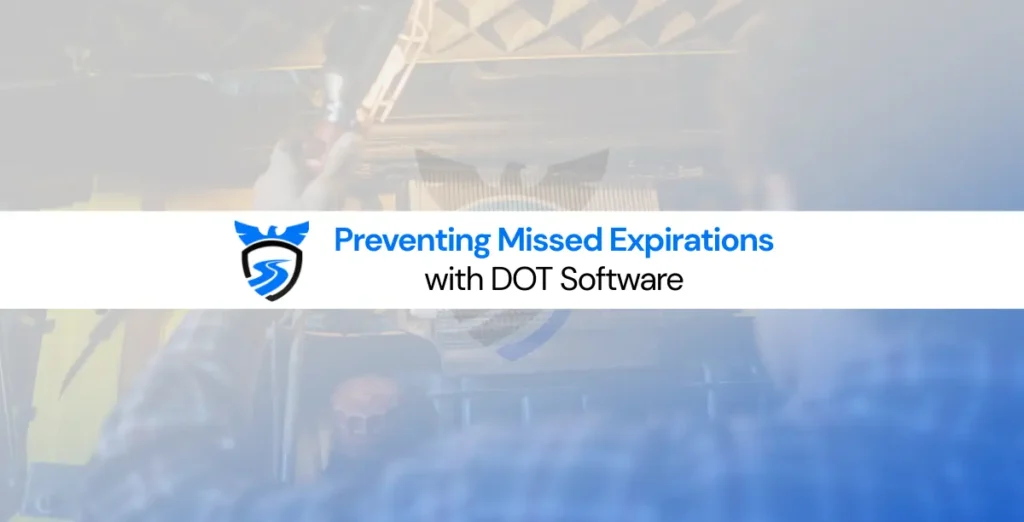
Disclosure: Informational only. We are not FMCSA or USDOT. Always verify your status directly through official systems. Why Missed DOT Expirations Are So Common Missed DOT expirations are one of the most common compliance failures across trucking fleets, owner operators, and even well established carriers. The reason is not negligence. It is a system failure. DOT […]